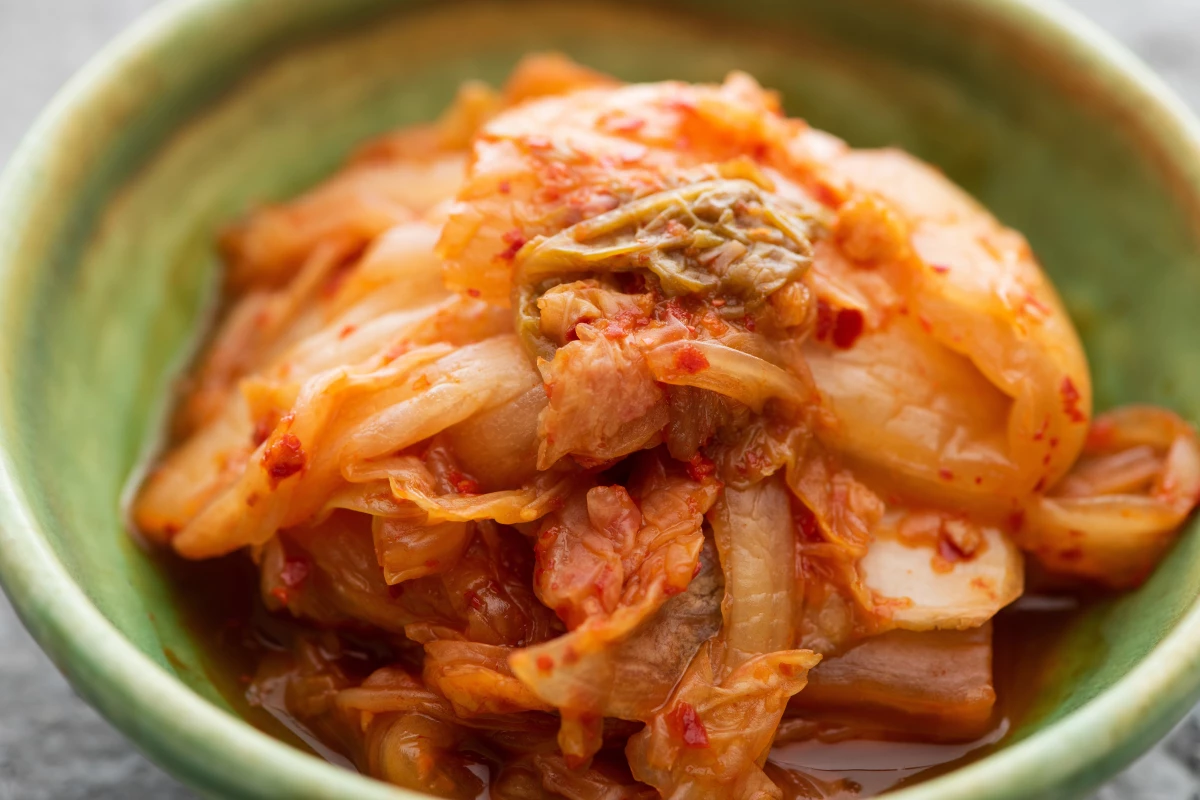A fermented food that has been a staple on plates in Korea for thousands of years has gone global in the past decade, with new research revealing that kimchi can lower triglycerides and blood pressure and regulate fasting glucose levels.
Researchers from the University of Connecticut's College of Agriculture, Health and Natural Resources (CAHNR) have assessed nine recent studies looking at the health benefits of kimchi, the traditional dish made of salted, fermented napa cabbage, gochugaru (Korean chili powder), garlic, ginger and scallions, and often fish sauce or fermented shrimp.
The studies, which span 2011 to 2023, largely focus on kimchi's ability to lower blood pressure – which has surprised scientists, given that its often high in sodium – and boost metabolic function. One study found that people who regularly consumed kimchi had 1.93 mg/dL lower fasting glucose, 28.88 mg/dL lower triglyceride levels and reductions in systolic and diastolic blood pressure by 3.48 mmHg and 2.68 mmHg, respectively, compared to a control group.
“That’s a really good number,” said Ock Chun, professor of nutritional sciences at the University of Connecticut. “In clinical settings, even a reduction of 5 mmHg in systolic blood pressure is considered a meaningful improvement. So, seeing comparable reductions from a dietary intervention, not medication, is a very promising result.”
It's believed that kimchi has a beneficial impact on blood pressure largely due to its high potassium content, which helps counteract the effects of sodium and regulates fluid balance. In addition to this, the lactic acid bacteria produced in the fermentation process may also help the body flush out sodium.
“This suggests that other components of kimchi, such as beneficial bacteria, offset the hypertensive effect of sodium,” said lead researcher Seoeun Ahn.
While the scientists were focused on recent studies relating to hypertension and blood glucose, broader research has found that kimchi is somewhat of a gut "superfood," largely due to the probiotics produced as the cabbage ferments. These beneficial bacteria can help maintain a balanced gut microbiome, improve digestion, reduce bloating and constipation, and even alleviate symptoms of irritable bowel syndrome (IBS).
In a 2024 study involving 115,726 Korean men and women aged 40-69 years, people who ate one-to-three serves of kimchi a day had better metabolic health markers than those who didn't eat it regularly. For men, eating traditional cabbage-based kimchi (baechu) was associated with lower prevalence of obesity, while consuming radish-based kimchi (kkakdugi) was tied to lower abdominal fat in both men and women.
However, the researchers compiling this latest meta-analaysis have also pointed out that, so far, nearly all studies have been conducted in Korea. More broader demographic studies are needed to better understand how kimchi impacts the health of non-Asian consumers.
“It would be very meaningful to conduct an intervention study in the US,” Ahn said. “That way we could see if the findings of this meta-nalysis can be generalized to more diverse populations.”
Kimchi is thought to date back thousands of years, when ancient Koreans used this fermentation method to preserve their salted and seasoned vegetables, beans and seafood in large earthenware jars (onggi), in order to keep foods edible throughout long, harsh winters. While China and Japan both have versions of kimchi, those nations' dishes are more likely to be pickled, skipping the full fermentation process. There are now more than 200 variations of kimchi in Korea.
The rise in popularity of this staple dish has largely been attributed to the spread of Korean culture beyond the country's borders, known as the "Hallyu" wave – where K-pop, K-dramas, films, food, beauty and fashion gained a huge following across Asia during the 1990s. Now, kimchi can be found on supermarket shelves across the globe, with the US market alone expected to be worth US$8.6 billion by 2035.
The research was published in the journal Nutrition Reviews.
Source: University of Connecticut





